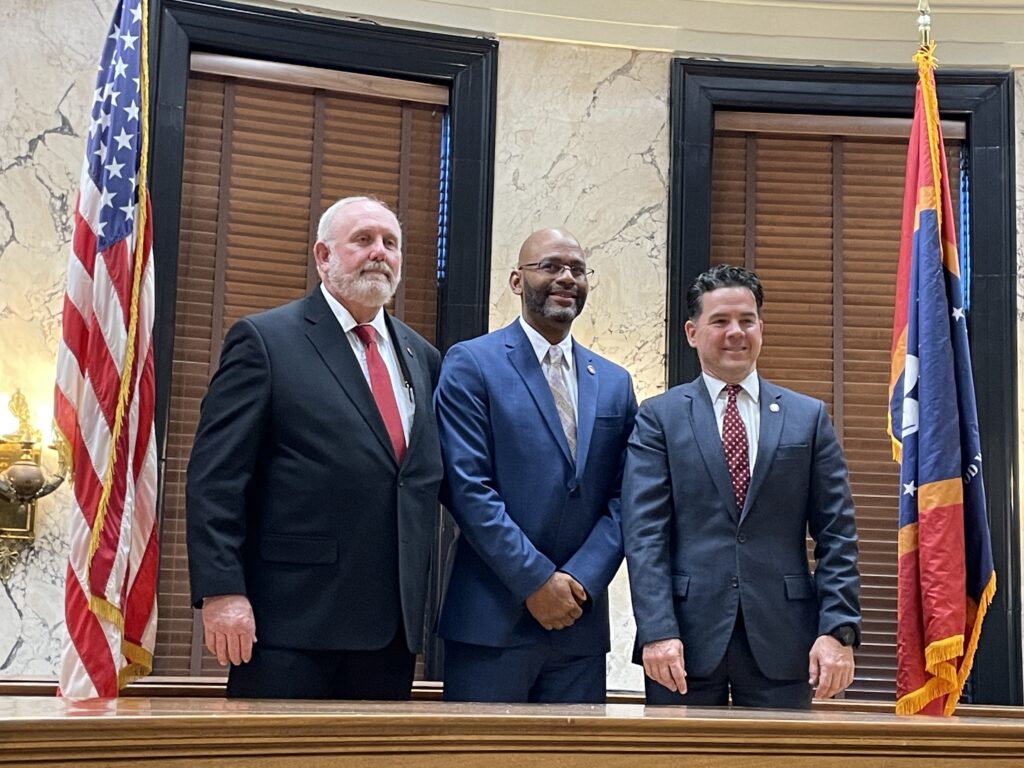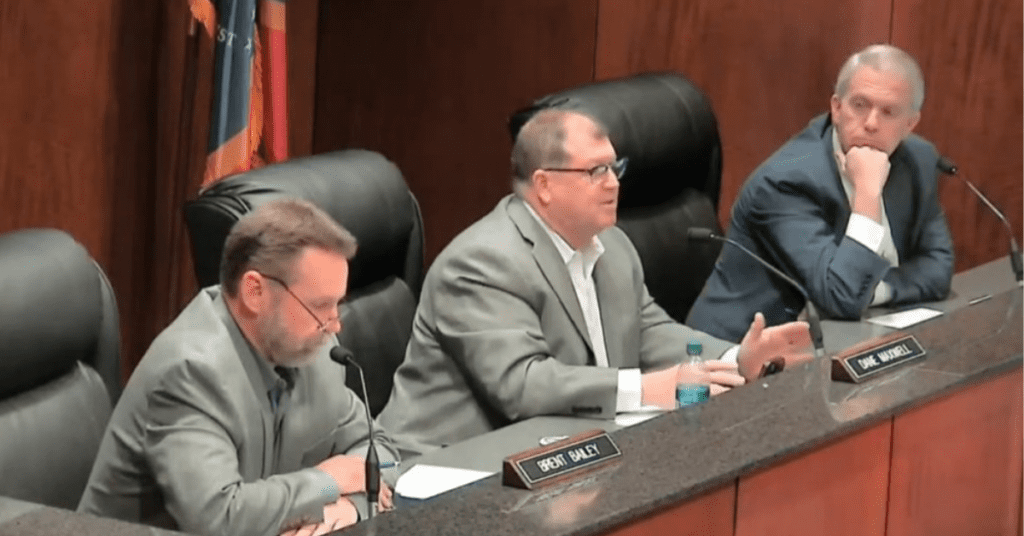
- The solar subsidies, which have gone completely unused, were implemented in 2022 by former PSC Commissioners Presley and Bailey.
The Sierra Club has filed a lawsuit against the Mississippi Public Service Commission following a 2-1 vote staying a provision within the updated net metering rules that allowed subsidies up to $3,000 for low-income persons to invest in rooftop solar. The decision also halted the “Solar for Schools” program.
Robert Wiygul, the attorney for the activist environmental group, claims the PSC did not comply with legal procedural requirements which provide for public notice and an opportunity for comment prior to their April 11, 2024, action which amended the net metering rules, also known as the “Mississippi Distributed Generation Rules.”
Wiygul, an Ocean Springs attorney, is also a frequent intervener in cases coming before the Public Service Commission on behalf of the Sierra Club.
Public Service Commissioners Chris Brown and Wayne Carr, both Republicans, voted to stay the subsidies and suspend the ratepayer funded incentive programs which have notably gone completely unused since its adoption in October 2022.
In a statement on the vote, Northern District Commissioner Brown, the Commission’s Chairman, said he would not apologize for doing exactly what he said he would do when he campaigned for the position.
“I’m here to represent the Mississippi ratepayer, not special interest groups. If your industry can only succeed by milking hardworking Mississippians, then your industry won’t succeed with me as Chairman,” Brown said. “At the end of the day, I’m not anti-solar, but I am opposed to placing undue costs on the ratepayers.”
Southern District Commissioner Carr agreed with Brown, saying, “We ran on a platform rooted in common sense, and we intend to uphold that promise. Our decisions will reflect the values of our constituents and the principles of rational governance.”

Central District Commissioner DeKeither Stamps, a Democrat, voted against the stay, but says he did so out of a desire to have the issue vetted before the Commission more thoroughly.
“I wasn’t necessarily against what they were doing, just how it was done,” Stamps told Magnolia Tribune.
Yet, Stamps sees the Sierra Club’s lawsuit as “a fundraising ploy to raise money from out-of-state people painting a picture of the Public Service Commission that’s not true.”
“Painting a picture that the Public Service Commission is against solar or against the solar industry in our state is false,” Stamps said. “Net metering is still in place. This is not a lawsuit; this is a fundraising ploy.”
Commissioner Stamps pointed to Commissioner Brown presiding over a hearing for a private sector solar energy project in Tunica this week, an investment the Commission as a whole supports, he said.
Stamps, along with Brown and Carr, have repeatedly expressed their unified desire to employ “an all of the above approach” to keep rates low and ensure energy is reliable.
As for their recent decision now being challenged by the Sierra Club, Commissioner Brown said he is not surprised.
“I promised to stand in the gap between industry and ratepayers in the Northern District. This is the perfect example of what I meant when I said liberal interest groups and corporations are actively coming after Mississippi ratepayers,” Brown said. “With this vote, Commissioner Carr and I choose to stand in their way.”
Biden Administration Solar for All Program
While the subsidy incentive programs in Mississippi have gone unused since their adoption, an announcement made by the Biden Administration some 10 days after the Public Service Commission’s decision to stay the subsidies complicated the issue with advocates for solar seeing green.
Under the $7 billion Solar for All program in the Inflation Reduction Act, Hope Enterprise Corporation was awarded $62,450,000 to “advance affordable and resilient solar energy access for low-income and disadvantaged households across Mississippi.”
“The ‘Residential Rooftop Solar for Low-Income Households’ strategy targets the development of a residential rooftop solar leasing market in areas served by state’s investor-owned utilities, aiming to ensure savings for every low-income household while enhancing the local solar installer ecosystem,” a release from the U.S. EPA states.
U.S. Senator Bernie Sanders (I-VT) praised the funding announcement, saying the legislation that he successfully introduced “will not only combat the existential threat of climate change by making solar energy available to working class families, it will also substantially lower the electric bills of Americans and create thousands of good-paying jobs.”
It remains unclear as to how the Public Service Commission’s decision in Mississippi will impact this federally funded effort.
How Mississippi Got Here with Net Metering and Subsidies

Net metering was first considered in 2015 in Mississippi. It allows property owners who have distributed generation capacity from solar panels or wind turbines to sell their excess power capacity back to the grid in the form of credits.
The 2022 update to the Mississippi Distributed Generation Rules was hotly debated given that it included the subsidies now in question. In October 2022, the Mississippi Public Service Commission voted 2-1 to revise its net metering rules which included the low-income and “Solare for Schools” subsidies.
Then-Commissioners Brandon Presley (D) and Brent Bailey (R) voted to adopt the changes while Commissioner Dane Maxwell (R) voted in opposition.
Presley and Bailey Backed the Subsidies
Presley touted the programs as a means to “reap millions in new revenue for public schools, provide Mississippians a route for energy independence and savings while making our electric grid more reliable.”
The former Northern District Commissioner said it could create $40,000 to $125,000 in annual revenue for the 85 school districts served by Mississippi Power and Entergy which could go towards teacher pay increases or funding the school supply lists.
Bailey, too, praised their decision, saying the rules made Mississippi open to business for clean energy technology developers, manufacturers, and installers, “which will create countless good paying jobs in the industry.”
“We are seeing a transition across the nation, from coast to coast, as we embrace the benefits of developing a diversified market for energy,” Bailey, the former Central District Commissioner said. “The new rules provide customer incentive programs that reduce risks, reduce energy consumption, and puts money back into customers’ pockets, while at the same time diversifying the energy fleet in the state, resulting in a more resilient, reliable, and affordable power system.”
Both Presley and Bailey now work for companies that promote solar projects and investments. Presley was announced as the Vice President of Strategic Initiatives for Kentucky-based Edelen Renewables in February 2024 following his unsuccessful bid for governor. Bailey joined Efficient Power & Light in April 2024 as their Vice President of Operations.
In a review of campaign finance reports during the 2023 election cycle, Magnolia Tribune reported that Presley and Bailey previously took donations from the Sierra Club and their counsel Wiygul, who is now suing the Public Service Commission over their recent action related to the solar subsidies.
As Commissioner, Presley routinely received contributions from both the Sierra Club and Wiygul, some of which included Sierra Club donations of $5,000 in 2015, $5,000 in 2018, $5,000 in 2019, $10,000 in 2020, $10,000 in 2021, and $45,000 in 2023, along with a donation from Wiygul of $5,000 in 2023.
Wiygul donated $500, and the Sierra Club contributed $20,000 to Commissioner Bailey in 2019.
Also littered throughout PSC Commissioner campaign finance reports over the years were donations from organizations, lobbyists, and persons who advocated for increased solar energy production and usage.
Bailey, who lost his re-election bid in 2023 to now Commissioner Stamps in the Central District, attended the April 2024 meeting of the Public Service Commission to defend the solar subsidies.
“My ask is to at least give this program a chance. See where it goes and hear from stakeholders that have participated,” Bailey asked the Commissioners, noting his desire to see the people take advantage of the economy growing around the solar industry.
Maxwell, Reeves, and Watson Voiced Opposition
Former Southern District Commissioner Maxwell, then-chairman of the Commission, read a statement at the close of the October 2022 meeting where the rules were adopted outlining his concerns. While he voiced support for both “traditional and renewable forms of energy,” he said his primary contention was the unfair cost of the net metering rules on Mississippi ratepayers.
“The reason I have consistently voted against the new net metering rule is that it just doesn’t sit right with me to give a certain customer a subsidy paid for by other similar customers,” Maxwell said. “Here is an example. I can’t comfortably say to one customer, you must pay 11 cents per Kwh and to another, you don’t have to pay that. Let’s require the first person running a single parent household to subsidize the second one by giving the second one a $3,000 gift, while forcing the first person running that single parent household to pick up that cost in the rates paid by that family. The people in my district that elected me, know that is not just and certainly not reasonable.”
In the weeks leading up to the Commission’s vote, Maxwell, who lost his 2023 re-election bid to Commissioner Carr, was joined in his opposition by both Governor Tate Reeves (R) and Secretary of State Michael Watson (R). Reeves called it a “bad deal” for Mississippi utility ratepayers.
“Woke Biden policies have driven the cost of energy too high for Americans. Now, the [Mississippi] Public Service Commission is prepping to vote again to make you pay more each month so that some homes – only those that they choose – can get money to install solar panels,” Governor Reeves shared on social media. “Bad ‘net metering’ means more expensive energy for you – [Mississippi] ratepayers.”
Secretary Watson said the subsidies were “another tax straight out of the Biden administration’s playbook.” He added that residential solar power is not economically feasible for most, which is why the federal government is “offering tax credits and rebates and now the MS PSC [is] offering rebates.”
Where the Sierra Club’s Challenge Stands Today
The lawsuit challenging the Public Service Commission’s roll back of the solar subsidies was filed in Hinds County Chancery Court on May 10th.
The Sierra Club is asking the court to invalidate the Commission’s stay on the subsidies and order that they be reinstated. The group is also seeking its costs associated with the filing.
You can read the full filing below.











